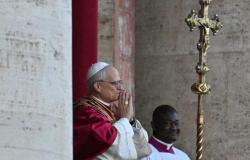Vladimir Putin received for the first time at the Kremlin of former Israeli hostages released from Gaza, including Alexandre Trufanov, Russian-Israeli citizen. A diplomatic gesture which occurs almost a year and a half after the release of some of them and that the French geopolitologist Pascal Le Putremat, guest of the program Prime on i24news, replaces in a broader Russian positioning strategy in the Middle East.
A timing revealing Russian ambitions
“We can imagine that there is a tempo that is really part of a broader vision in terms of active diplomacy,” explains the Patremat. According to the expert, this late meeting is not the result of chance but is integrated into a precise geopolitical context: “We are in a negotiation process between Russia and the United States regarding the future of the Russian-Ukrainian crisis.” The geopolitologist also underlines the concomitance of this reception with other Russian diplomatic maneuvers: “Vladimir Putin currently receives the emir of Qatar. We also know that it is relatively requested by Saudi Arabia.”
A power affirmation in the Middle East
For Pascal Le Putremat, this media staging allows Putin to recall his status as an essential actor in the region: “We realize that he is an unmissable actor. Everyone wants to chat with him, he knows, he feels it and he recalls that he also has a capacity for influence.” This influence is manifested in particular by “a lever to, in this case, obtain the release, unfortunately sparingly, of some Israeli hostages.” A way for the Kremlin to demonstrate its usefulness in the resolution of regional crises, while keeping the hand on the tempo of these releases.
Thanks to Hamas who challenge
One of the most striking aspects of this meeting remains the remarks made by Vladimir Putin, who took care “for not using the term hostage, captivity” and even “thanked Hamas leaders” for the release of these people.
A semantics that is not trivial according to the Pautremat: “It is a kind of diplomatic combination where it is a question of not offending anyone.” This ambivalent posture allows Russia to maintain relations with all actors in the region, including those in open conflict.
Syria, a real underlying issue for Israel
Beyond the question of hostages, the geopolitologist identifies a major issue for Israel in its relations with Russia: the future of Syria. “The Israelis are very concerned about the turn that the Syrian regime takes. Will Russia find a grip, an entry point in Syria? And if so, will it be able to prevent, too, Iran has a preponderant place?” This concern explains, according to the expert, why “Israel, necessarily, the Israeli regime is forced to take into account the posture and the tempo imposed by Vladimir Putin” despite the sometimes destabilizing statements of the Russian president.
The “realpolitik” in the face of emotion
Pascal Le Patremat concludes his analysis by emphasizing the permanent tension between geopolitical considerations and human dimension: “This is also there, you see, all the difficulty of realpolitik, a pragmatic policy, which can be cold. And we are far, obviously, of the empathetic notion and the suffering of beings and of each other.” This reception at the Kremlin perfectly illustrates, according to him, this dichotomy between the cold diplomacy of the states, calculated and pragmatic, and the tragic human dimension of the situation of Israeli hostages, some of which are still detained in Gaza.
In this great medium-oriental chess, Putin once again demonstrates her ability to use human dramas as levers of influence, while treating his image of an essential actor that can dialogue with all parts.








